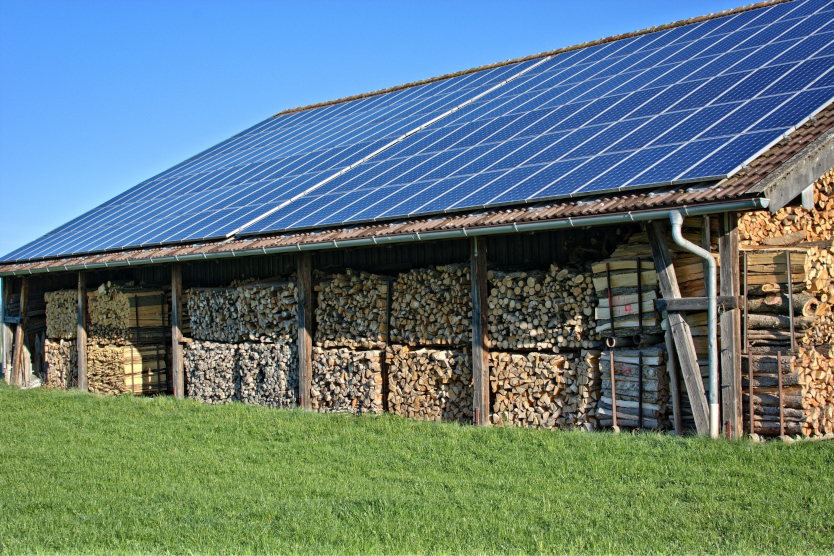
Firewood under a PV-roof: Heat and electricity must go hand in hand to make the energy system more effiicient.
© Pixabay
A large part of Germany’s total energy demand is generated in the building sector: more than half of this energy is used for heating and cooling. To ensure a successful energy transition it is therefore essential to reduce the energy consumption in buildings by improving the energy efficiency and further expanding the use of renewable energies in the heating sector. Increasing energy efficiency and generating a higher proportion of heat from renewable energies will not only make it more likely for the ambitious energy and climate policy goals set for the year 2030 to be achieved in the building sector, but will also make the energy transition more efficient and cost-effective for consumers.
One approach is the energy-efficient coupling of the electricity and heat sectors: heat pumps depend on electricity from the grid to generate cooling or heating. The successful integration of an efficient latent heat storage system could take the burden off the electricity grid and mean that electricity would only be purchased if cheap electricity from renewable energy sources was available. The Munich University of Applied Sciences is working on the development of such a solution together Cabero ‒ a manufacturer of heat exchangers for refrigeration and air conditioning technology – within the scope of the Smart-Case-NZEB project funded by the Federal Ministry for Economic Affairs and Energy (BMWi).
Latent heat storage systems represent an efficient and flexible solution. They can store a large amount of heat temporarily and release it again over a longer period of time. Using this technology to directly store electricity by way of heating or cooling would also increase the efficiency of the heat pump.
As part of the project, the German partners and the Finnish university TAMK in Tampere are constructing a pilot plant in which this concept will be tested. The project, which was launched in October 2018, will run until the end of September 2021.


